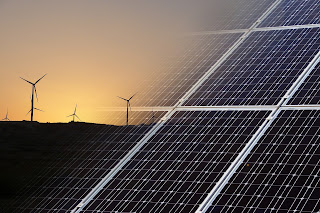CLIMATE CRISIS – ENERGY: Renewable energy continues to bring Socioeconomic Benefits
GEÓ NewsTeam 4 years agoRenewable energy continues to bring socioeconomic benefits by creating numerous jobs worldwide, according to the latest figures released by the International Renewable Energy Agency (IRENA) today.
Author
-

Broadcasting Daily from Gibraltar Newsroom our dedicated desk editors and newsdesk team of Professional Journalists and Staff Writers work hand in hand with our established network of highly respected Correspondents & regional/sector specialist Analysts strategically located around the Globe (HUMINT) Our individual Desk Editors all have specific subject authority as Journalists, Researchers and Analysts covering AI, Autonomous Transport, Banking & Finance Technology, Cybersecurity, GeoCrime, Defence 3.0, Energy & Renewables, BioEconomy and Transport & Logistics. Contact the NewsTeam at [email protected]
View all posts








